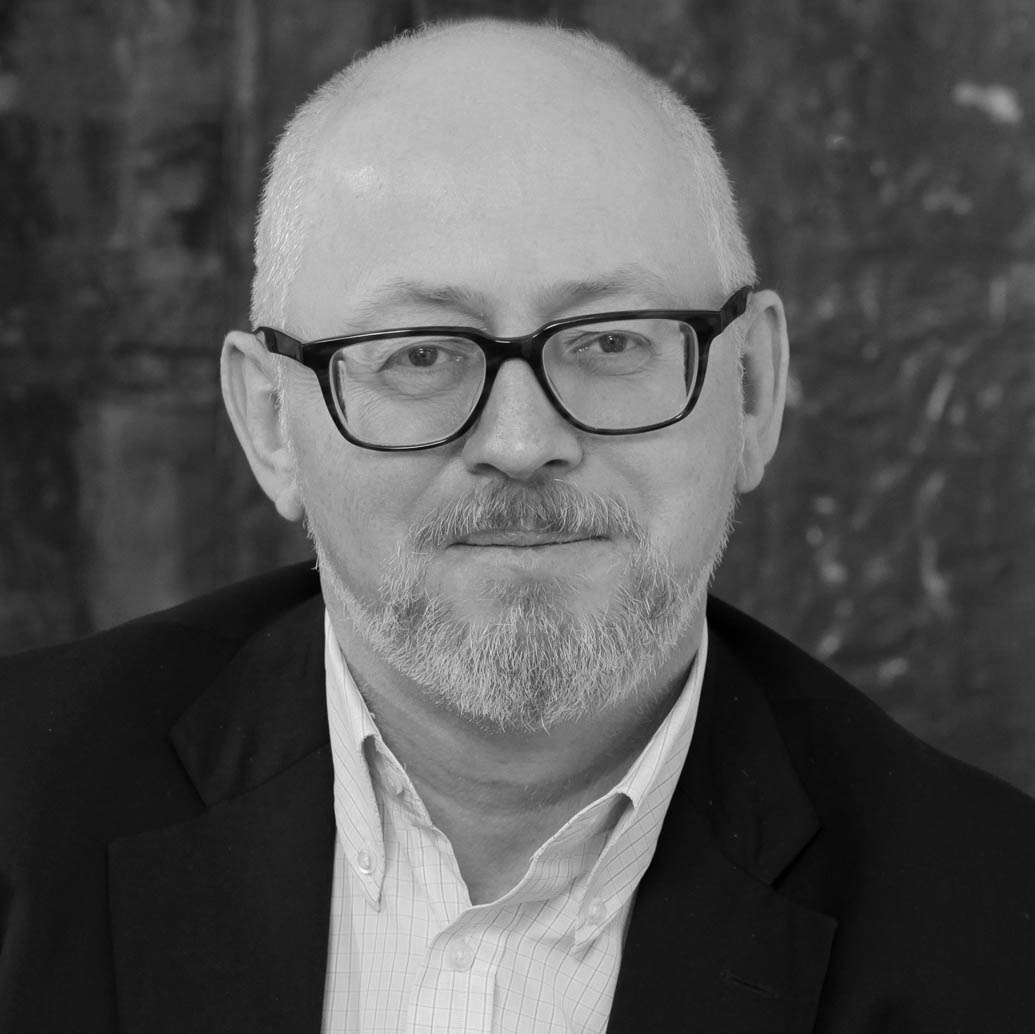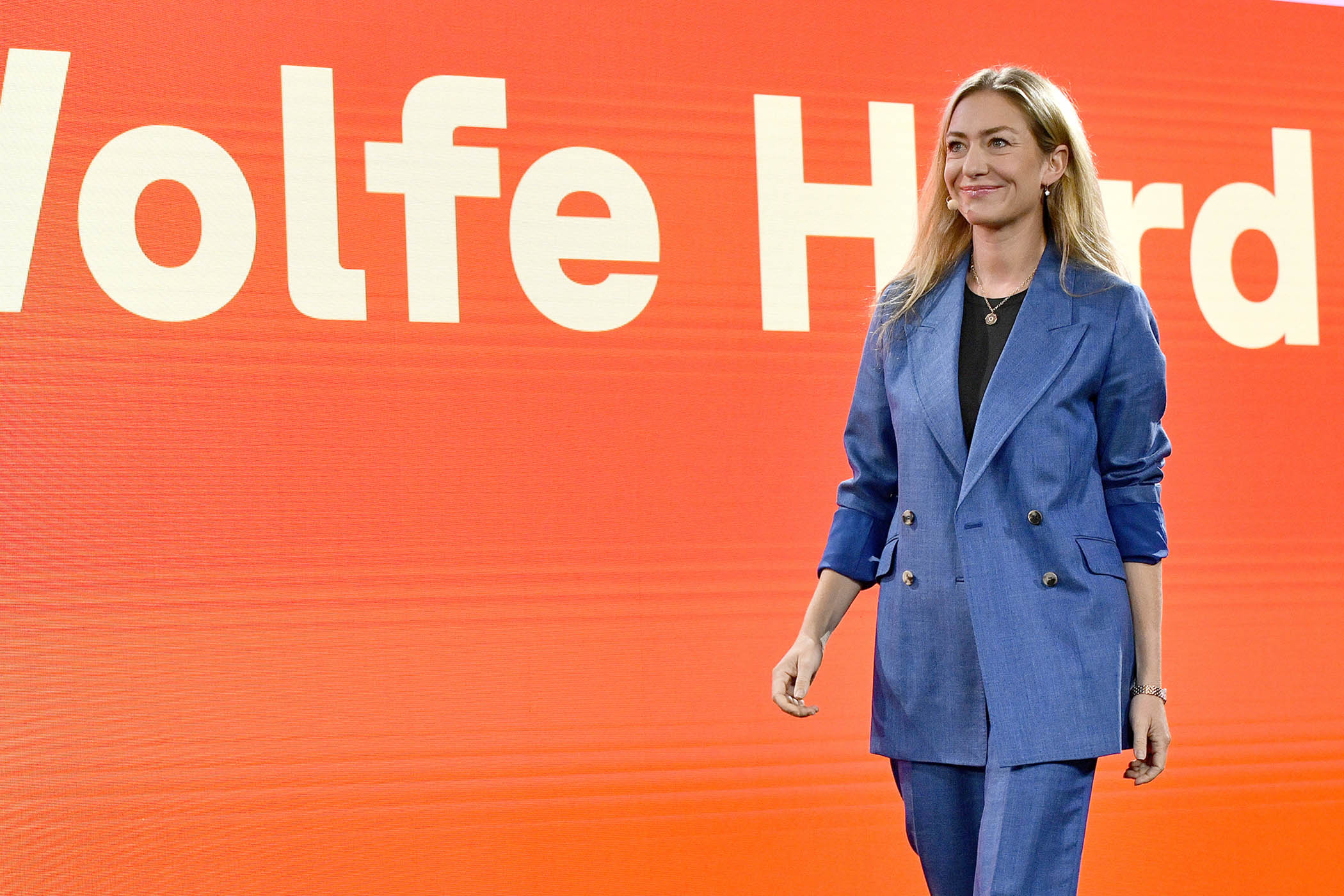‘Love and power” has become shorthand for the business philosophy of Octopus Energy. The fast-growing electricity firm signs off messages to its customers with these words, and even sells a hoodie emblazoned with them, made, it says, in a factory powered by renewable energy. It’s a quirky way of telling customers that the firm is prioritising them. “People know us and they get us when we send an email out,” says Simon Rogerson, CEO of the parent company, Octopus Group. It reveals the “personality of the brand and the company you are talking to”.
This cute slogan is a small part of a whole package of things that make Octopus Energy a British poster child for B Corporations – a newish kind of “doing well by doing good” company that is legally committed to serving all its stakeholders, not just making as much profit as possible for shareholders.
The bar to becoming one is high – sometimes prohibitively so. This has the advantage of warding off corporates that would use the mark to wash reputations, but has meant that uptake among the largest firms has been slow. Only 6% of British B Corps are large companies with at least 250 employees. So far, one company in the FTSE 250 has become a B Corp – the NHS landlord Assura in 2024.
An existing company becoming a B Corp may have to modify its legal articles of association and meet demanding criteria across seven categories: purpose and stakeholder governance; fair work; justice, equity, diversity and inclusion; human rights; climate action; environmental stewardship and circularity; and government affairs and collective action. “Imagine the world’s most complicated tax return,” says Rogerson. “That is good, right? The bar for this cannot be a tick box. It must be something companies aspire to.”
‘If companies were people, what would some of them be like? You probably would not say nice things’
‘If companies were people, what would some of them be like? You probably would not say nice things’
Simon Rogerson, Octopus
And, increasingly, they are. At a time when positive news about idealism in business is in short supply, data shared with The Observer shows that B Corps are booming in Britain, which is now home to more than 2,600. This total has now overtaken that of the US, making Britain the leader in a global movement of more than 10,000 B Corps across 102 countries, working to build an economy friendly to people and the planet. London is probably the B Corp capital of the world, with more than 1,000 certified companies.
Most of them are small and medium enterprises. Few are backed with venture capital. Efforts to convert big public companies have floundered, after even Paul Polman couldn’t pull it off at Unilever. Still, the growth in the number of B Corps is mounting evidence that they are becoming an economic force to be reckoned with.
That B Corps are already having a significant economic impact in Britain is made clear in a new report marking 10 years since a 62-strong community of British B Corps founded B Lab UK. (Volans, a consultancy focused on sustainability, became the first British firm to gain B Corp certification in 2013.) Collectively, British B Corps spanning more than 120 industries now generate combined annual revenues of about £38bn, a total growing by 20% a year. That is many times faster than the growth rate of the British economy, and of comparable companies that are not B Corps. These B Corps employ more than 200,000 people, a total growing by 11% a year.
Britain has run with an idea that was conceived and birthed in the United States. The first B Corp was certified in 2007 by B Lab, a nonprofit founded a year earlier by Jay Coen Gilbert, Bart Houlahan and Andrew Kassoy, three thirtysomething friends who had become dissatisfied with conventional corporate jobs and wanted to build a better form of capitalism.
Related articles:
Compared with America, Britain has a longer, deeper tradition of attempting ethical capitalism, stretching back to companies such as Lever Brothers, Rowntree and Cadbury and, in a wave of corporate social consciousness that preceded the present one, the Body Shop. There has not yet been the equivalent here of America’s Trump-championed backlash against so-called “woke capitalism”. Though primarily aimed at the use of ESG (environmental, social, governance) and DEI (diversity, equity and inclusion) goals by business and investors, it may also have slowed B Corp growth.
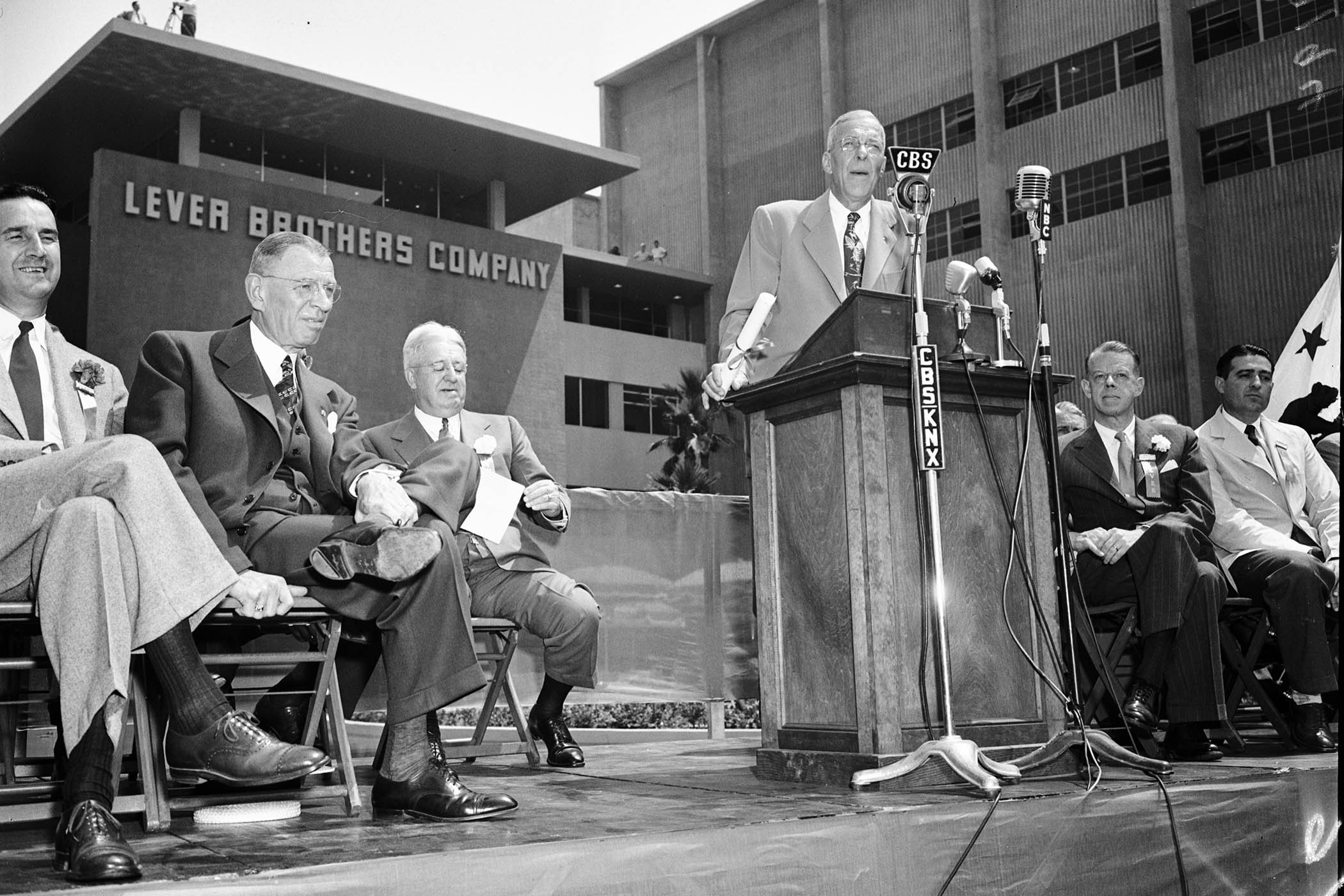
Lever brothers opening, 1951
UK consumers are arguably more discerning than in the US. A recent survey of the British public found that 63% use certifications to inform shopping decisions, and public awareness of the B Corp brand had risen to 51% from 34% in 2022.
Newsletters
Choose the newsletters you want to receive
View more
For information about how The Observer protects your data, read our Privacy Policy
B Corps have become a magnet for workers seeking an alternative to the prevailing employment monoculture, says Hilary Cottam, author of The Work We Need. This helps give them an edge in recruiting scarce talent that is “attracted to places where there is worker autonomy and where work has purpose” – an attraction reflected in the rapid recent growth in employee-owned firms in the UK. About 14% of British B Corps have some employee ownership, according to the B Lab UK report – much higher than in the rest of corporate Britain.
Covid helped to accelerate the growth of B Corps. The pandemic “led a lot of business leaders to think deeply about purpose, asking themselves ‘why are we doing this? Why do we exist?’,” says Chris Turner, head of B Lab UK since 2019. “It also gave them more time to make the changes needed to earn certification as a B Corp.”
But the work is not done. The B Corp movement is rolling out the biggest ever upgrade to its certification process, trying simultaneously to raise the bar and reduce any unnecessary burdens on companies. One flaw in the old certification process was that a firm could score so highly in some areas where it excelled that this would outweigh dire performance in others. (This may have been the case for brewer BrewDog, which lost its B Corp status after allegations about its workplace culture.) Now, companies will have to attain a minimum score in all seven categories.
To reduce the administrative costs, the new certification process is big on interoperability with the growing number of other social and environmental standards and disclosures that companies are dealing with.
It will be interesting to see if this increases the number of big publicly traded companies becoming B Corps, as the cost of certification is often cited as a reason they have yet to do so. (The real reason may be that investors don’t want them to abandon profit maximisation.)
The French food company Danone remains, for now , a solitary giant in the global B Corp movement. But there are signs it helped commercially. In the three years after it started the certification process in 2022, net sales grew between 4% and 7% annually.
The online crafts marketplace Etsy, an early American B Corp and one of the first to go public, was forced to abandon that status by activist investors who demanded the firm maximise profits.
B Lab UK has great ambitions for the movement in the next 10 years. “Our goal is to have every business in the UK acting as a force for good,” Turner says. “That doesn’t mean we want every business to be a B Corp, but we do want to shift the culture of business, the structures that govern business behaviour.”
One lever is policy. Its Better Business Act campaign aims to amend section 172 of the Companies Act so that every director of a UK firm has the responsibility to align the interests of people, planet and profit. After a high-energy launch in 2021, momentum has been lost under a Labour government that shows little interest in corporate governance reform. “The campaign needs to show the government that this change is not just a ‘nice to have’ but would actually help achieve its goal of faster economic growth,” says Colin Mayer from the University of Oxford.
Perhaps the evidence of superior economic performance in the new B Lab UK report will make the government think.
“The key message we are trying to land is that the B Corp approach to business, whether you define it as being a purpose-led business, a business for good, or taking a more human approach to business, is just good business. B Corps make better long-term decisions,” says Turner.
“We have a 10-year track record and thousands of companies who have been doing this for years – and the data to prove it works, without needing to rely on the moral and human case for it.”
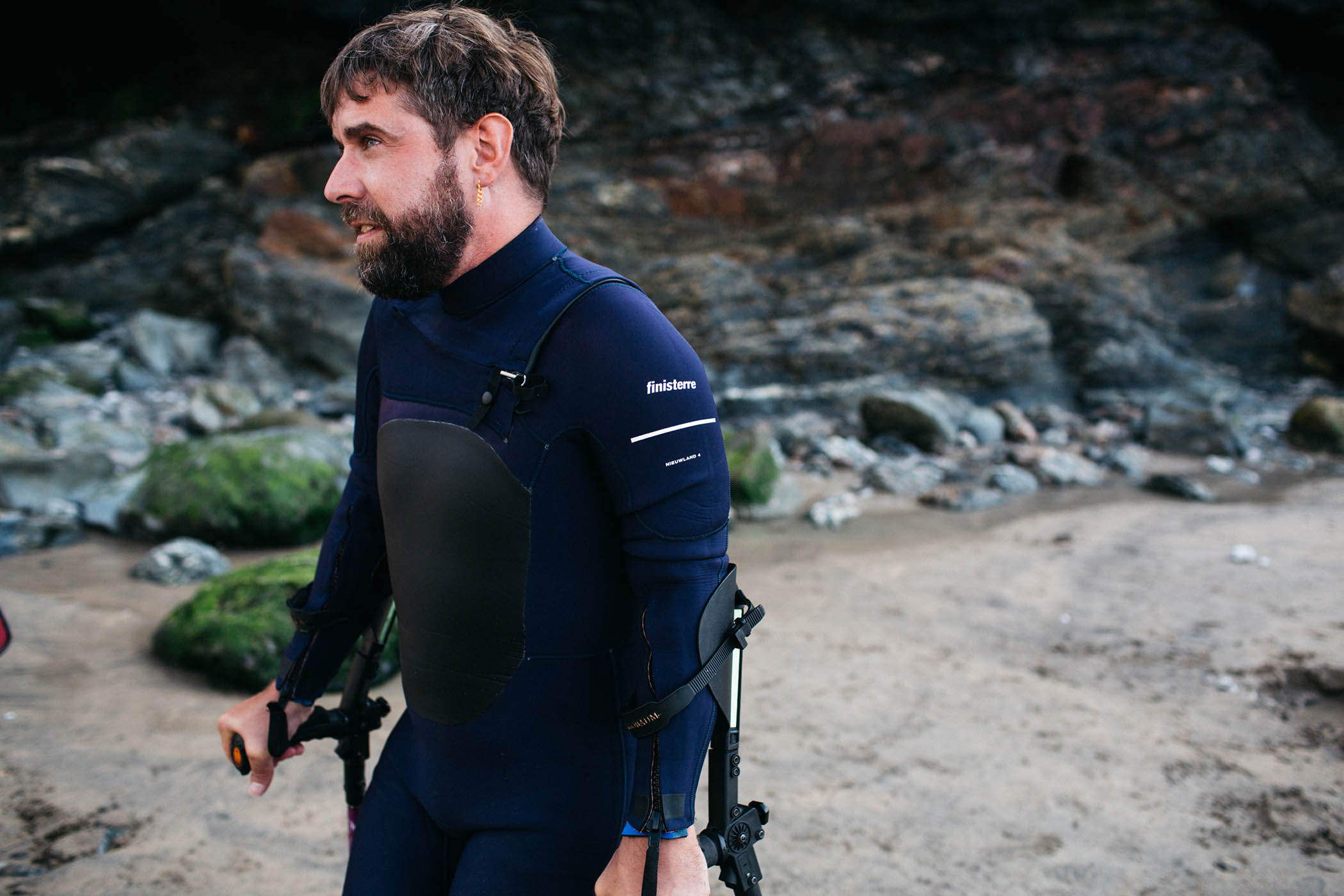
The B Corp community has been a helpful resource for some. “I’ve never experienced that openness between businesses before. I remember speaking to a chicken farm, and I have no idea how that industry works, but some of the principles are the same, and there’s always been this really lovely element of giving your time,” says Adele Gingell, head of positive impact at clothing company Finisterre.
Certification may be arduous, but there are signs it pays off with customers and employees. In a recent survey, Finisterre found that the B Corp badge was important to three-quarters of the 4,500 customers who took part, rising to 90% for the company’s employees. “We’re on the coast in Cornwall, and we want to protect our oceans, so it won’t always come back to people, but I think that way of thinking is really helpful.”
Finisterre donates 3% from every surf-specific wetsuit sale to a project providing adapted wetsuits to people with disabilities.
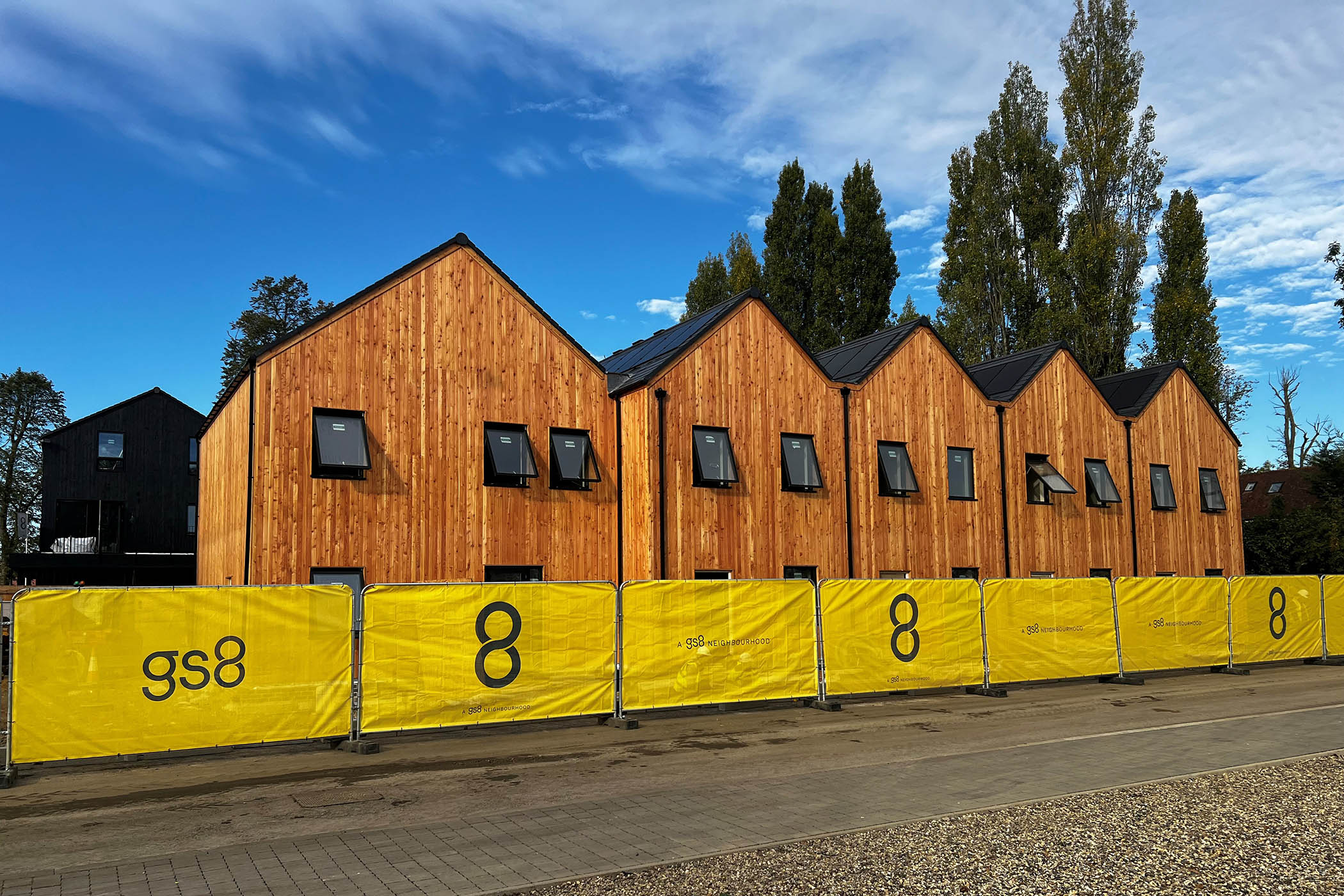
Octopus’s new Zero Bills homes are fully powered by green technology
The road to becoming a B Corp tends to run through private rather than public markets, and the rise of Octopus may demonstrate why. “I think it takes decades to build a special business,” says the group’s CEO, Simon Rogerson. “It doesn’t happen in the timescale that capital markets want it to. That’s a fundamental problem.”
The solution? Rogerson says it’s up to government to set the “tram lines” to make sure capital flows towards companies that behave responsibly. He decries the lack of pension funds invested in UK equities and the dearth of companies listing on London’s smaller exchanges. In his view, some sectors need to do better, with financial services companies having “largely outsourced their conscience to the regulator”.
But he’s optimistic of what’s ahead. Social media has turbocharged the power held by Britain’s discerning consumer. The success of Octopus is an indication that customers vote with their feet – as such, businesses are growing and dying far faster than they used to.
“If companies were people, what would some of them be like? You probably wouldn’t say very nice things. I think the B Corp movement is at the heart of trying to change that.”
Octopus launched a plan in 2024 to build 100,000 “Zero Bills” homes by 2030, equipped with fully renewable power and energy storage. The new-builds, which were first trialled in New Zealand and Germany, all come with a guarantee from the company that consumers won’t pay bills for at least 10 years.
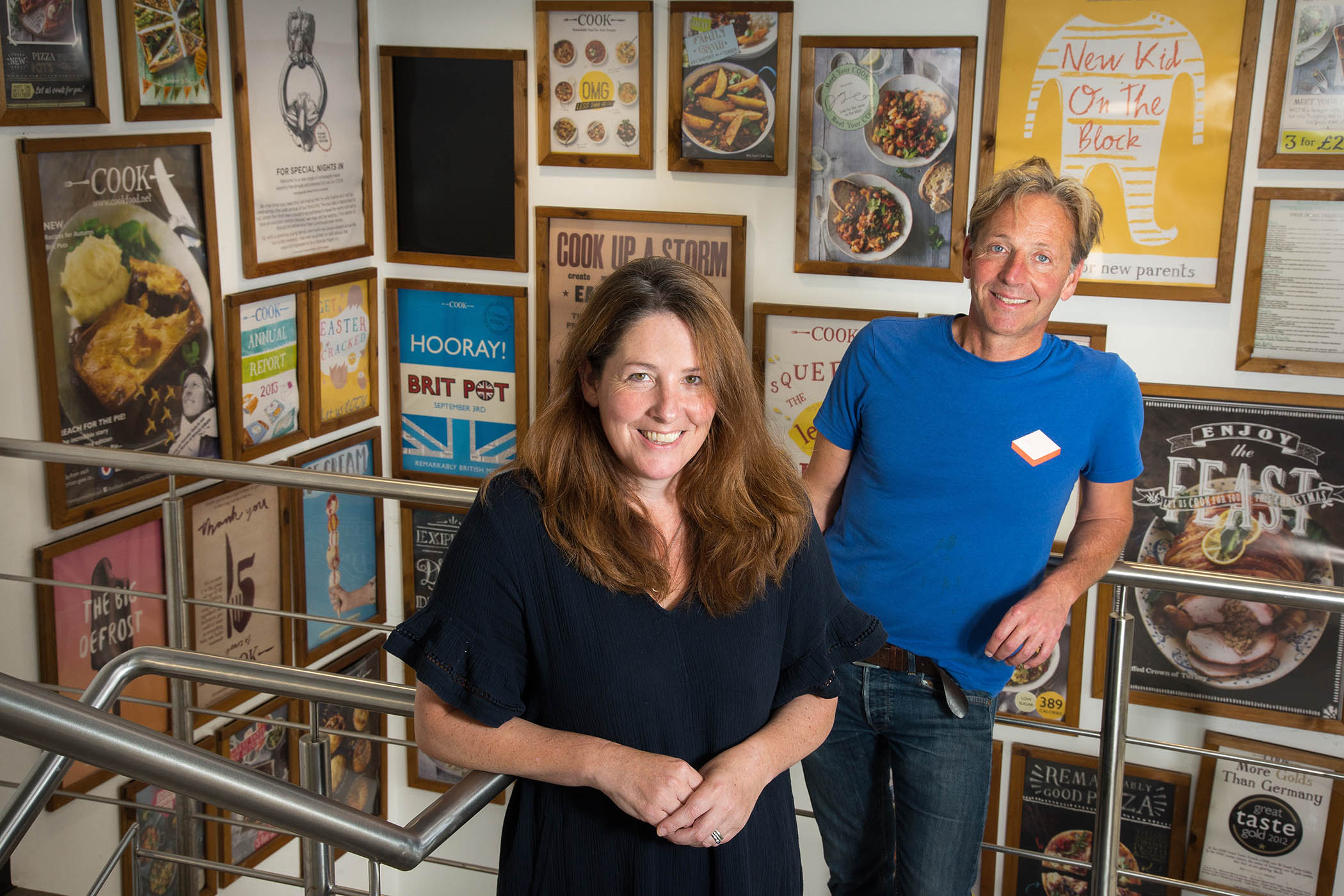
Ed Perry and Rosie Brown, siblings and co-CEOs of Cook
“I hold tight to the vision that business can and should get away from shareholder primacy,” says Rosie Brown, co-CEO of Cook, a frozen ready-meals brand.
“We need a really inclusive movement, and we need the big companies on board. I support the Better Business Act wholeheartedly. I think it is right that business should account for its social and environmental performance in a complex world.”
After attending a conference in Colorado, Brown and her brother James, the company’s co-chair, decided that Cook should become a founding member of the UK B Corp movement. In the years since, it has launched a series of initiatives including a talent programme that has offered more than 250 jobs to homeless people, addicts and former prisoners.
Brown admits it hasn’t always been simple: “Employing a lot of people is difficult in this climate… it’s just getting more expensive.”
But she also says that the task of finding great employees and partners has been made easier because Cook bears the B Corp badge. “It’s given us resilience through those storms of Covid and inflation. You protect your people, you protect the ingredients coming in through the back door, and your farmers. It’s given us clarity on what’s important.”
Photographs by Finisterre, Los Angeles Examiner/USC Libraries/Corbis via Getty Images, Finisterre, Octopus Energy, Tony Buckingham

